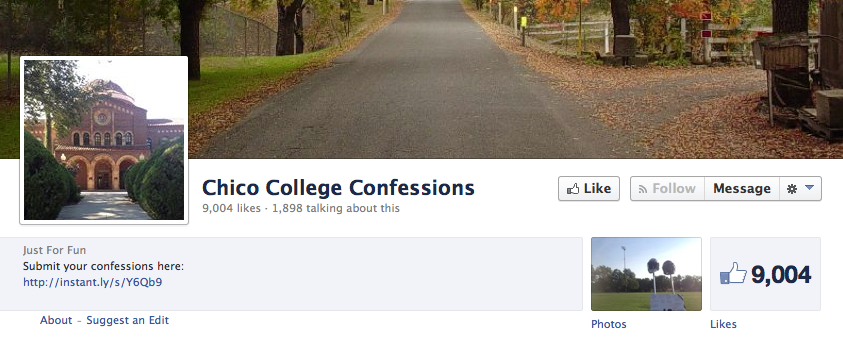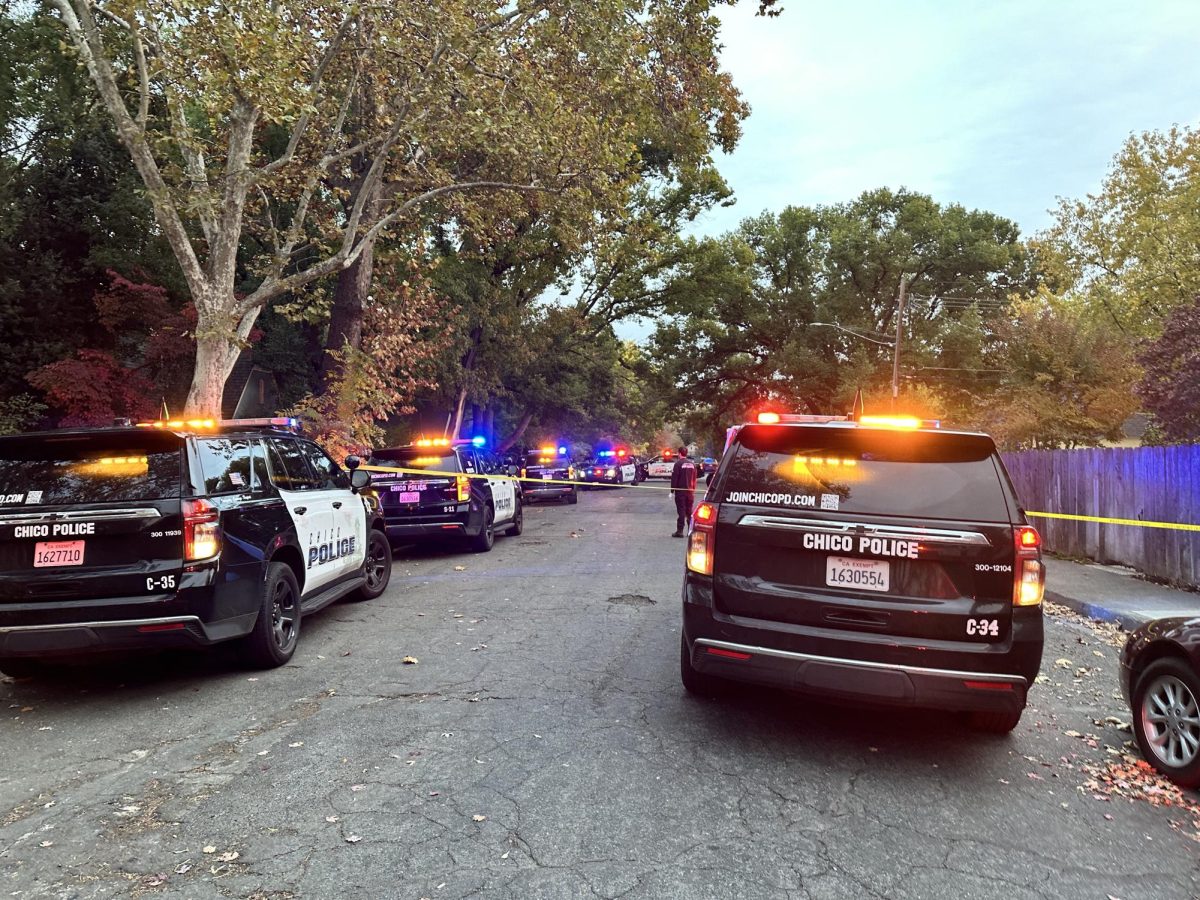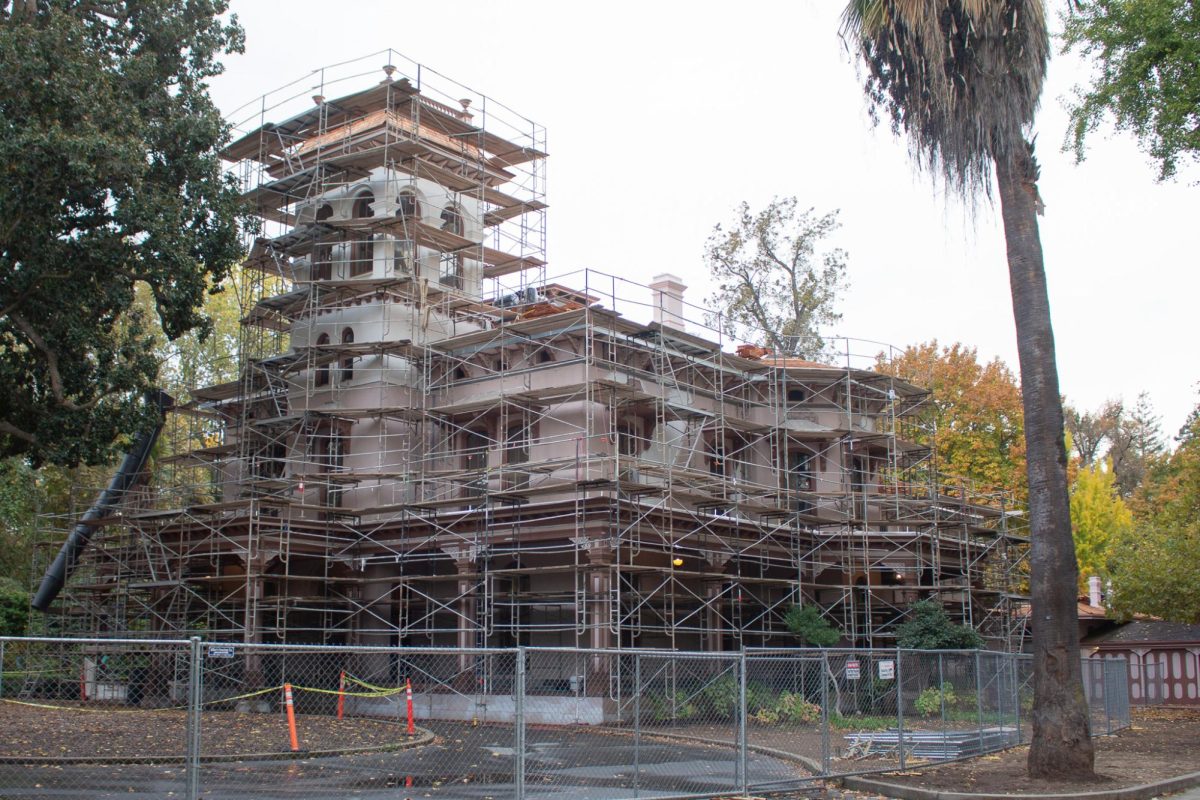
When Alberto Chavez started Chico College Confessions in February 2013, he never expected sexual assault victims would use the website to share their ordeals with fellow students.
Within the past few weeks, several anonymous students confessing about sexual assault have posted on the Facebook page.
Confession 3363 reads, “Four and a half years ago, I was drugged and raped at a party, to the extent where I don’t remember several days after.”
Chavez, a sustainable manufacturing major and one of the administrators for the Facebook page, developed the website after other universities created similar pages, he said.
Chavez thought Chico would have some crazy confessions to share.
“At first we thought it was going to be all fun and jokes and not anything too serious,” he said.
Users submit an anonymous confession through an outside website. The submissions are then posted on the Facebook page for the public to see.
Chavez posts any confession that does not attack a specific person or race and is not biased towards any person or group, he said.
Less than 5 percent of college students who are sexually assaulted will report it to the police, said Emily Peart, program coordinator for Safe Place at the University Police Department.
“It’s difficult to come forward and say, ‘I’ve been sexually assaulted, and I need help,'” Peart said. “It’s a difficult conversation to have — it takes a lot of courage.”
Specifically on college campuses, the fear that they will be blamed is a big reason people won’t come forward to report a sexual assault, she said.
“It creates all of these questions in the victim’s head that makes them doubt whether or not it’s worth telling somebody,” Peart said.
“Was telling one of my guy friends about how I almost got raped one night and his response was ‘so what, a lot of girls almost get raped,’” reads confession 3437. “Just proves men’s idiocy when it comes to sexual violence.”
Societal stigmas surrounding sexual assault prevent victims from coming forward and seeking help, Peart said.
Confession 3453 reads, “My professors and friends don’t know that the reason I’ve been missing so much class is that I was sexually assaulted a few weeks ago. The only person I told thought it wasn’t a big deal. I don’t want to talk about it. I don’t want to deal with it. I don’t want to deal with anything. I wish there was a way to tell them without telling them.”
Men report sexual assault much less than women do and women already underreport, Peart said.
“I think if we were to have really accurate numbers, if everyone reported 100 percent of the time, people would be really surprised to see how many of our men are being victimized,” she said.
If it is difficult for a woman to come forward and admit to being sexually assaulted, it’s much harder on men because of the stigma surrounding male sexual assault, she said.
“All of these things that they hear on a daily basis from the time that they’re really little kids comes up when they go through a sexual assault or a rape,” Peart said. “They think, ‘Oh, I can’t come forward, they’re going to judge me, they’re going to think I’m weak,’ and people will think, ‘Oh my gosh, who is he that he can’t protect himself?’”
In confession 3359, now removed, a male student admitted to being sexually assaulted and was hesitant to come forward and report it to the police.
The comments on this post ranged from supportive to accusatory.
Confessions can be removed if someone asks the administrators to delete them, Chavez said.
Some students might come forward on the confessions page instead of reporting to the police because they can remain anonymous and will receive support through comments on the post, Chavez said.
“I think they are genuinely scared and don’t want people to judge them,” he said. “They have never been through something so rough and don’t know how to handle it. The page allows them to tell people without actually revealing their identity.”
Madison Holmes can be reached at [email protected] or @madisonholmes95 on Twitter.








